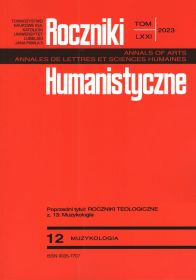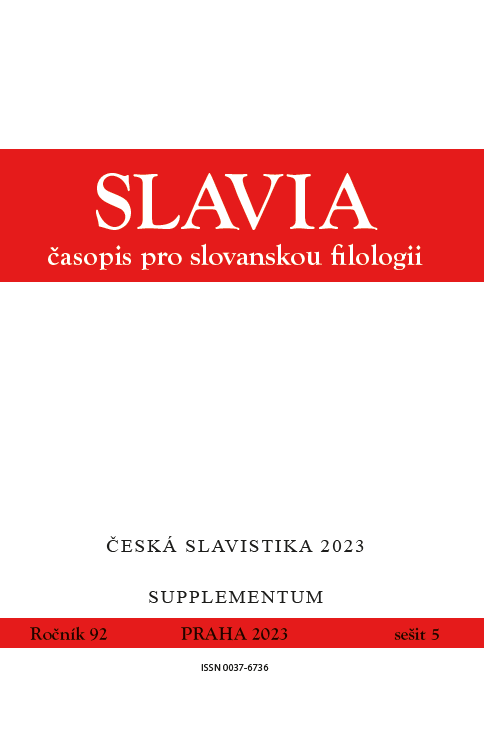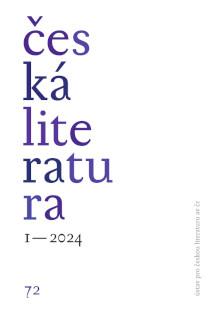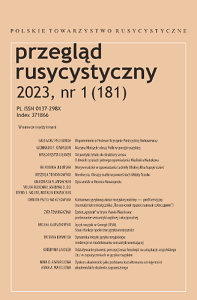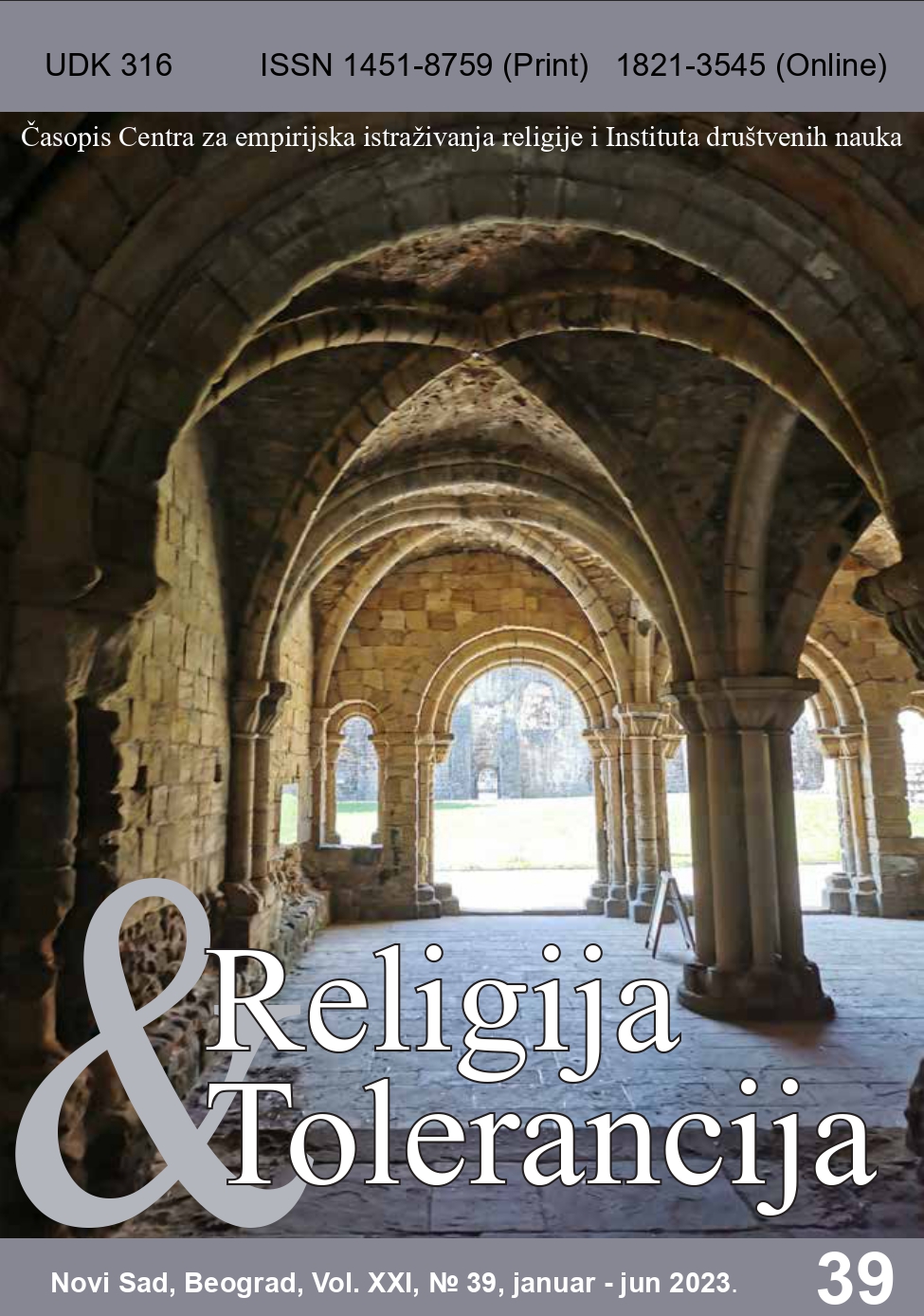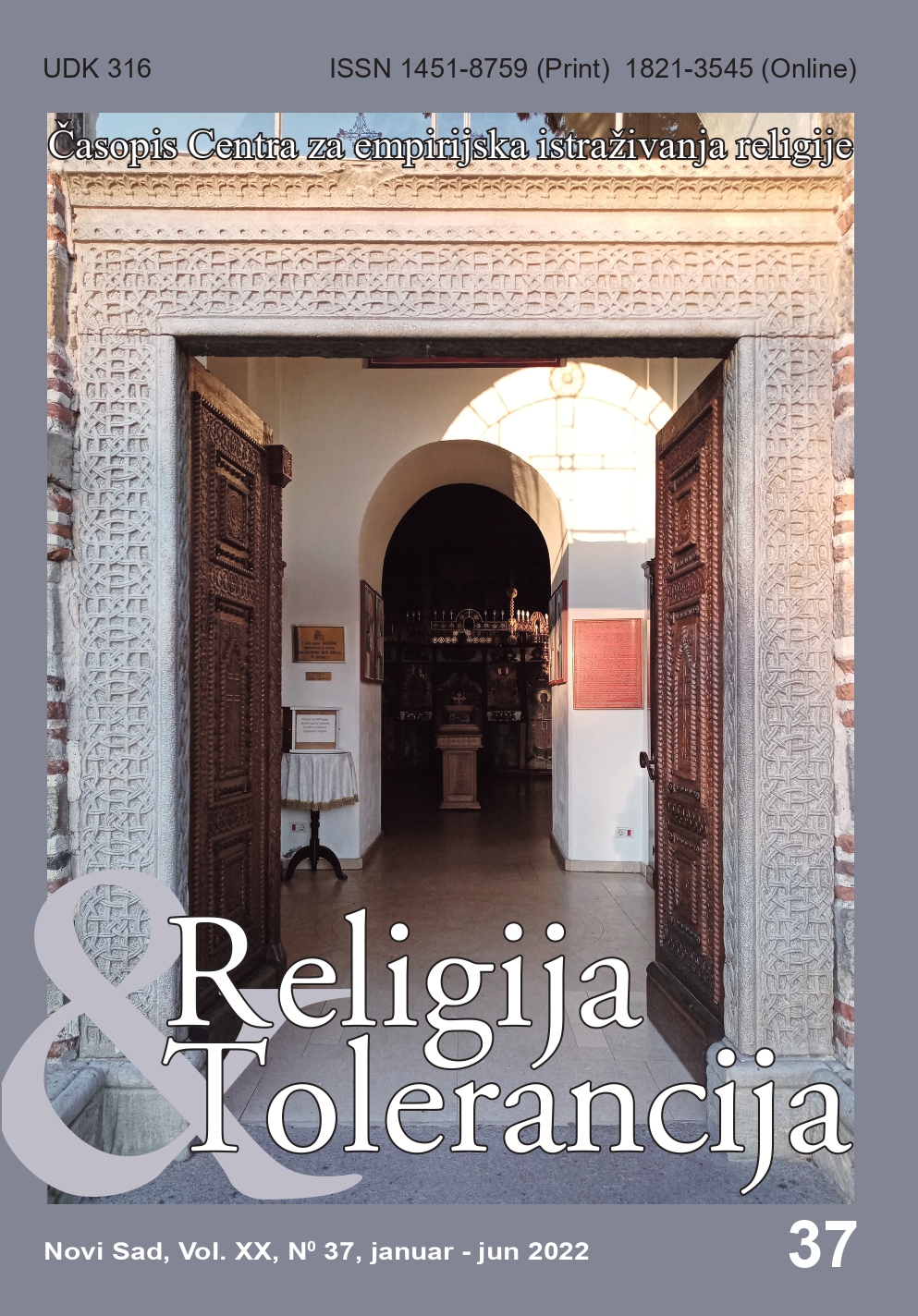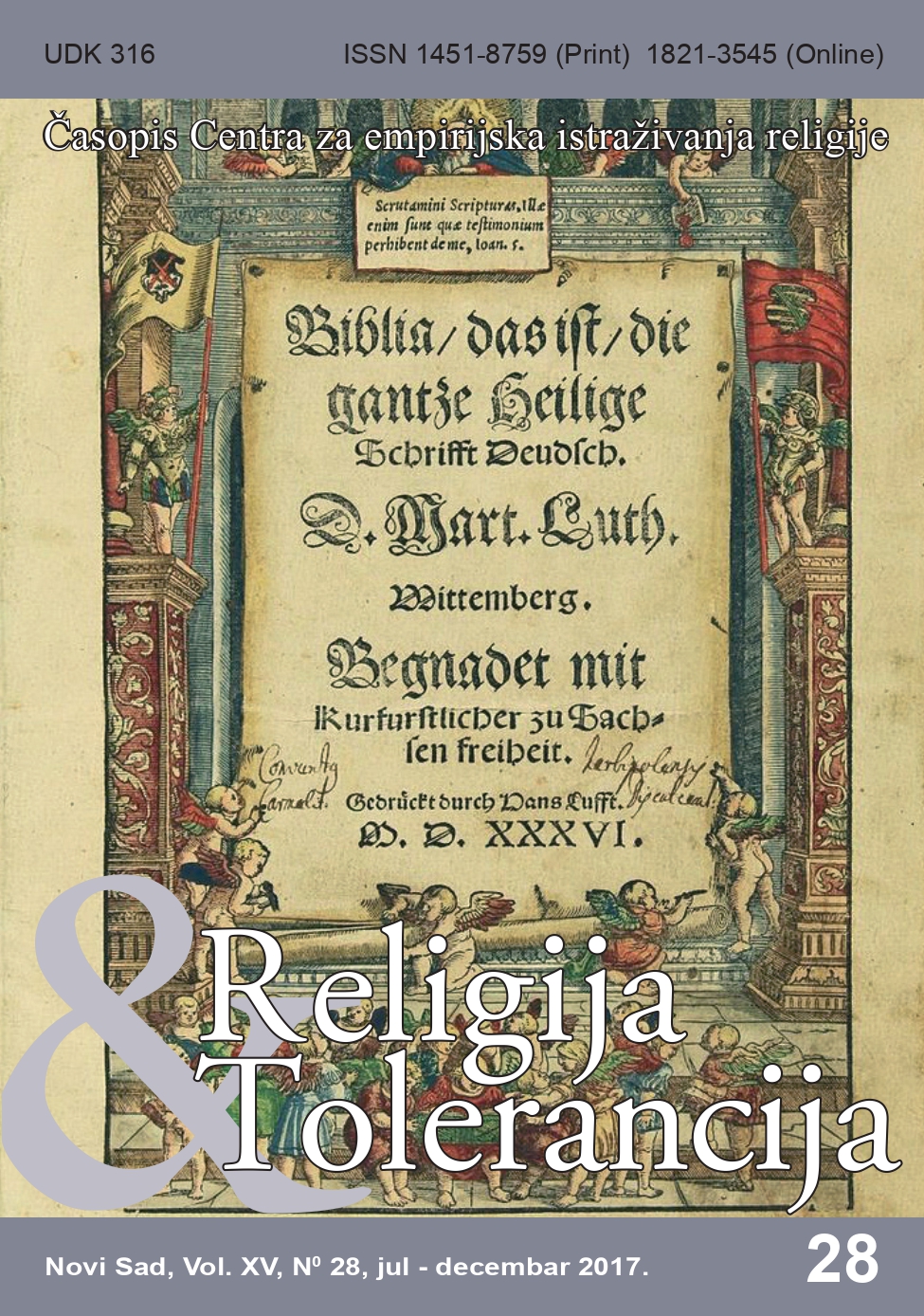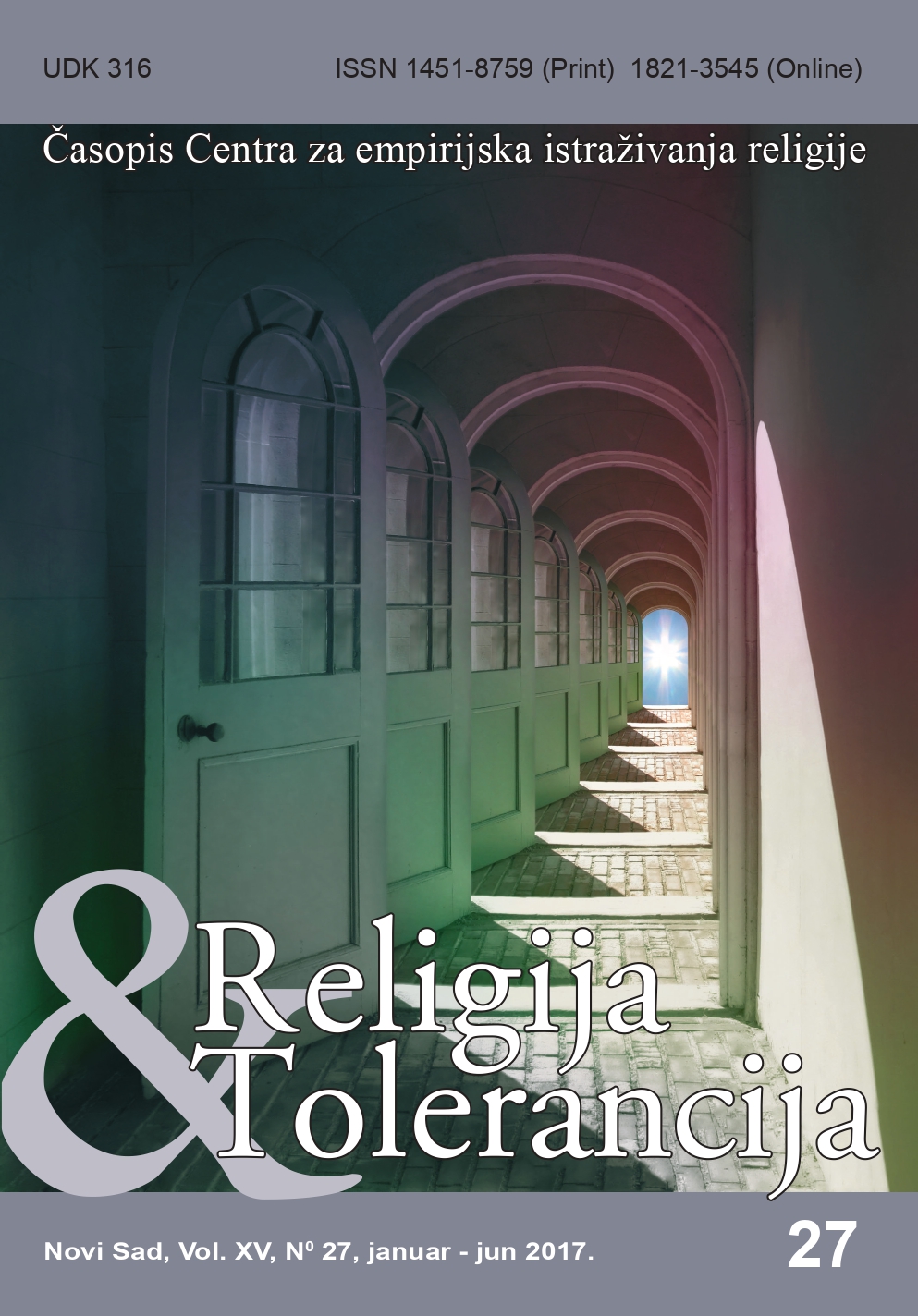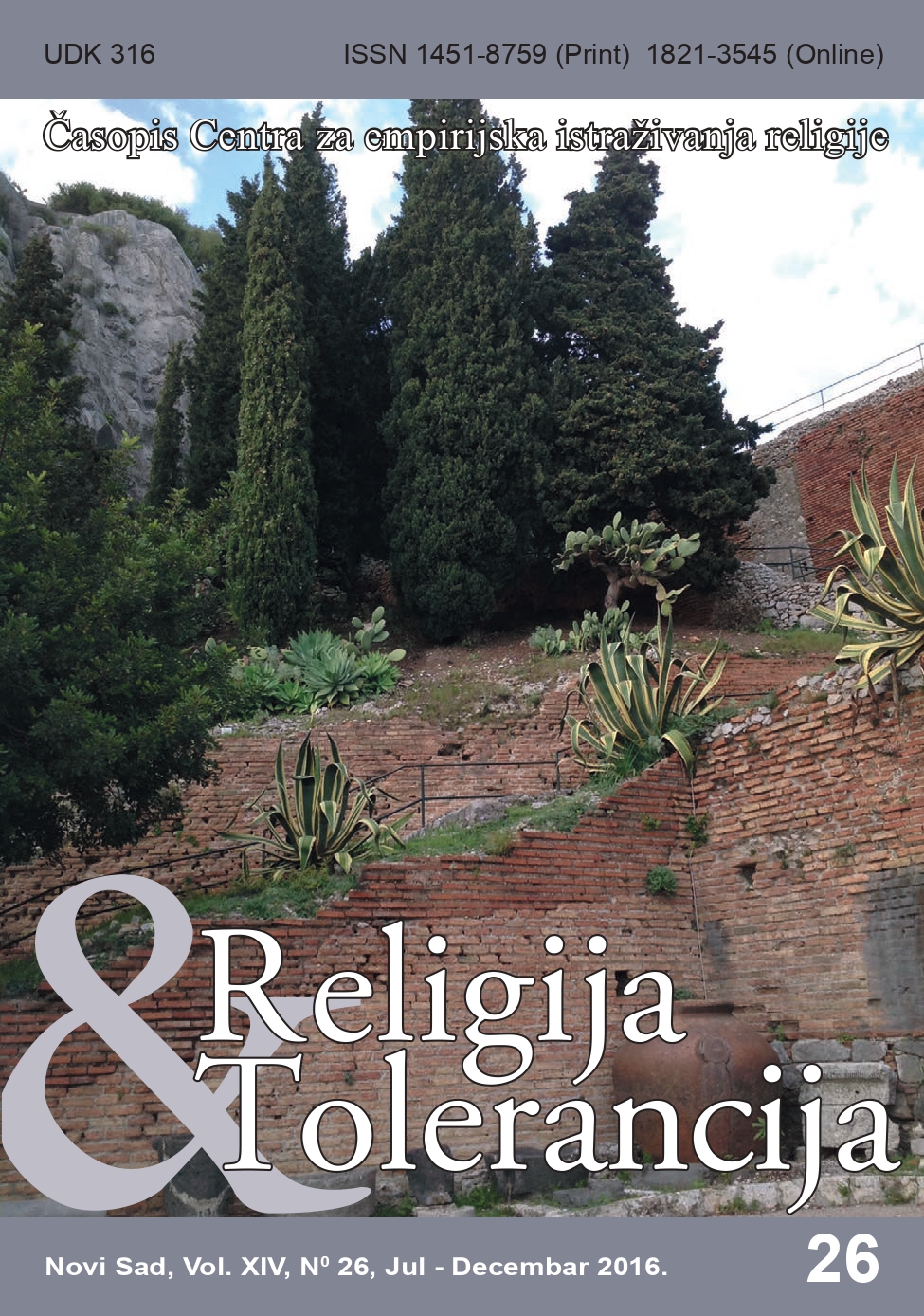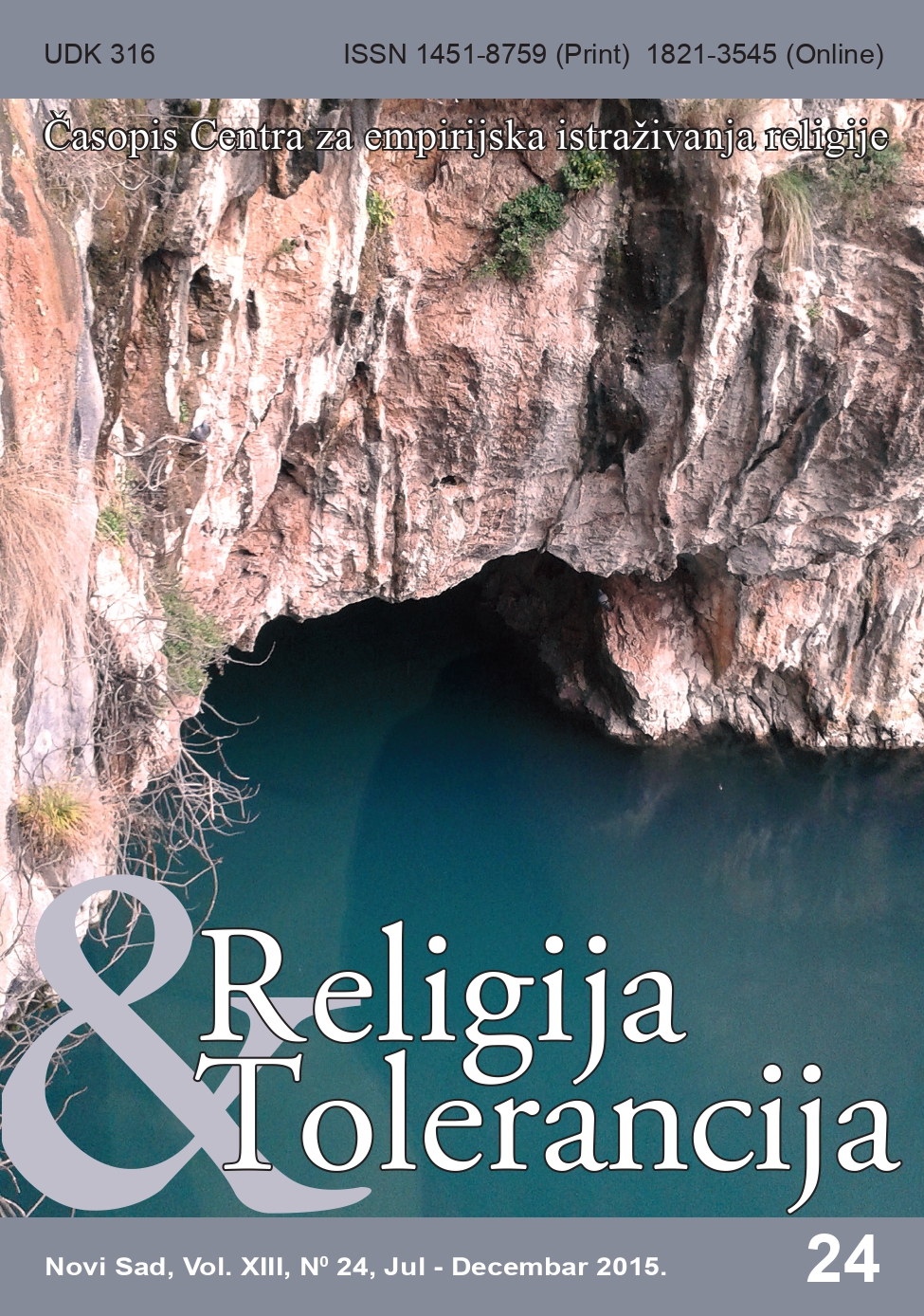Author(s): Nemanja Krstić,Jasmina Nedeljković,Danijela Gavrilović / Language(s): Serbian
Issue: 26/2016
The higher level of religiosity is a phenomenon which is related to the fall of the socialistic system of values and to the conflicts on the ex-Yugoslavian territory. In these newly created circumstances religion takes over many functions (of identification, of integration) and becomes the functional equivalent of the socialistic system of values. Beside these „local“ factors a large impact on the revitalization of religion have global factors which actually make this phenomenon a dominant trend in general development of religion (Berger, 1999; 2007). A great number of sociologists from the ex-Yugoslavian territory have studied the issue of the revitalization of religion, its nature and the quality of this process (Zrinščak, 2008, Flere 2008, Cvitković 2009, Đorđević 1994; 2000; 2009; Blagojević, 2005; 2009, Kuburić 2009; 2007; 2006, Gavrilović 2013). Following the fact that religious values are determinative for believers, we are starting from the assumption that the religiousness is going to have a great impact on the valuing of family and on family relations, particularly because the dominant religions in this region have developed a social thought about family, and, in addition, a significant activity of religious communities in this area of social life shows us that for catholicity, orthodoxy and Islam, family is still the most important part of one’s life. The paper presents the data from „Life-Strategies and Survival Strategies of Households and Individuals in South-East European Societies in the Times of Crisis“, a research conducted in four societies – Slovenia, Croatia, Bosnia and Herzegovina and Serbia, societies which are very different in terms of the dominant religion and the quality of religiousness, but similar in regard to the socialistic and Yugoslav past. The survey results show that in Slovenia and Bosnia and Herzegovina the ratio between the level of religiousness and the inclination to traditional family relations are around the expected rate (Inglehart, 2000), while in Serbia and Croatia religiousness doesn’t follow family traditionality. To be more specific, despite the high level of religiousness, examinees from Croatia have an untraditional attitude to family relations, while in Serbia the lower level of religiousness doesn’t correlate with the inherent traditionality.
More...
